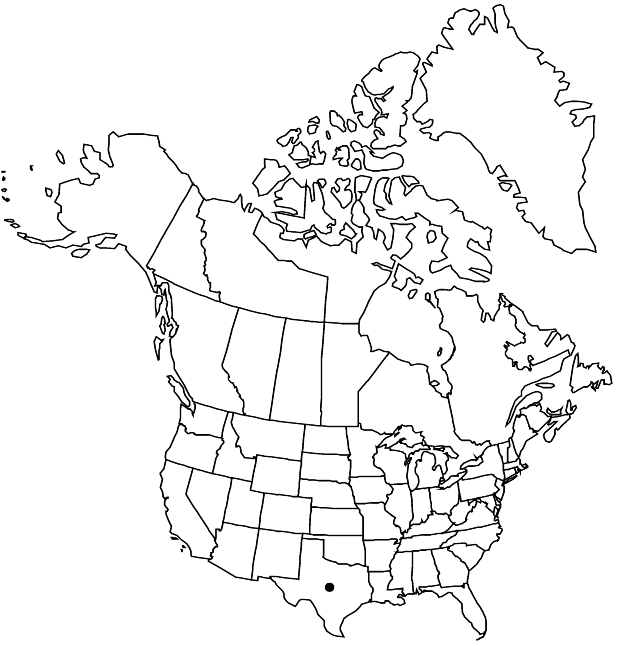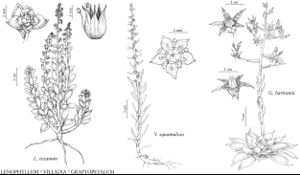Difference between revisions of "Villadia squamulosa"
in N. L. Britton and J. N. Rose, New N. Amer. Crassul., 5. 1903,.
FNA>Volume Importer |
FNA>Volume Importer |
||
| Line 9: | Line 9: | ||
|name=Cotyledon parviflora var. squamulosa | |name=Cotyledon parviflora var. squamulosa | ||
|authority=S. Watson | |authority=S. Watson | ||
| + | |rank=variety | ||
|publication_title=Proc. Amer. Acad. Arts | |publication_title=Proc. Amer. Acad. Arts | ||
|publication_place=22: 473. 1887 | |publication_place=22: 473. 1887 | ||
| Line 36: | Line 37: | ||
-->{{#Taxon: | -->{{#Taxon: | ||
name=Villadia squamulosa | name=Villadia squamulosa | ||
| − | |||
|authority=(S. Watson) Rose in N. L. Britton and J. N. Rose | |authority=(S. Watson) Rose in N. L. Britton and J. N. Rose | ||
|rank=species | |rank=species | ||
| Line 51: | Line 51: | ||
|publication year= | |publication year= | ||
|special status= | |special status= | ||
| − | |source xml=https://jpend@bitbucket.org/aafc-mbb/fna-data-curation.git/src/ | + | |source xml=https://jpend@bitbucket.org/aafc-mbb/fna-data-curation.git/src/f50eec43f223ca0e34566be0b046453a0960e173/coarse_grained_fna_xml/V8/V8_472.xml |
|genus=Villadia | |genus=Villadia | ||
|species=Villadia squamulosa | |species=Villadia squamulosa | ||
Revision as of 22:28, 16 December 2019
Stems 1+ from tuberous roots, strict, with 20–70 ascending leaves, 1–3 mm diam., nearly smooth. Leaf blades 1–2.5 cm × 1–3 mm. Inflorescences of compact, 1–3-flowered cincinni, 10–30-branched, 3–15 cm × 5–13 mm. Flowers: corolla rose or with white margins, 2–4 × 5–7 mm, tube ± 0.5 mm, lobes ovate; nectaries bright yellow, drying dark red, cuneate-flabellate, ca. 1 × 1–1.3 mm. Follicles red-brown, 2.5 mm; styles abruptly spreading. Seeds brown, 0.5 mm. 2n = 34.
Phenology: Flowering late summer–early fall.
Habitat: Rock crevices
Elevation: 1800-2400 m
Distribution

Tex., Mexico (Chihuahua, Coahuila, Durango, Zacatecas).
Discussion
Like Echeveria strictiflora, Villadia squamulosa enters the flora area only in the mountains of western Texas. It is remarkable for its flabellate nectaries, larger than in other species and large for the size of the flower. Also, the chromosome number seems to be unique in the genus. It is close to V. laxa Moran & C. H. Uhl, of western Mexico, and to V. minutiflora Rose, of Oaxaca.
Selected References
None.
